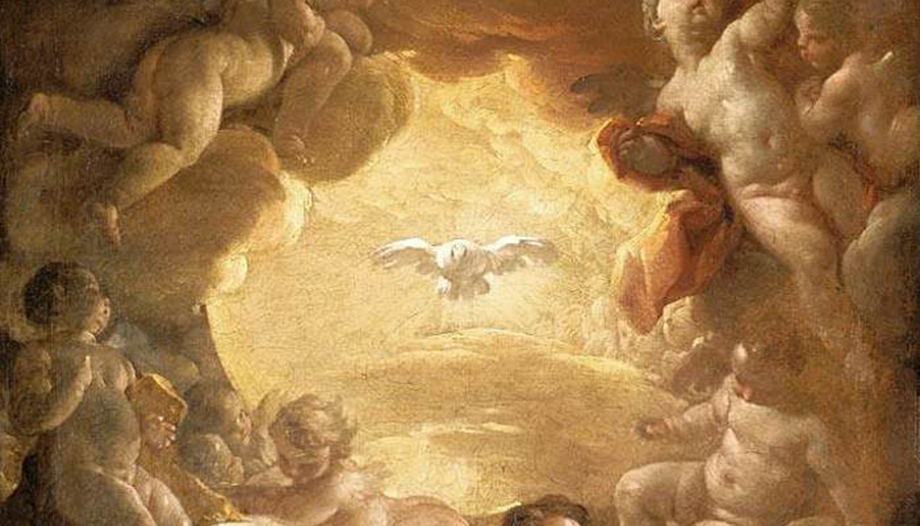Jesus, in the Gospel of John, already spoke to us about how the Father loves him. At the last supper he also speaks of our love for him, but he does not command it as the new commandment, he mentions it as a possibility: "If anyone loves me".
As a condition for the beginning of a journey that leads to observing his word and receiving the great promise: to become the place where the Father and the Son love each other and, therefore, the dwelling place of the Holy Spirit.
The author of Revelation says that in the new Jerusalem he saw no temple: God is all in all. For it is in the human heart that he desires to dwell. He stands at the door and knocks; if we open to him, loving him, he will come in and dine with us and we with him.
This is the only time that Jesus explicitly says that the Paraclete is the Holy Spirit, who is the Holy Spirit, the one who "will teach everything". Jesus did not mean everything, indeed, he said little, what we were able to understand, and, moreover, the Holy Spirit has to remind us of it.
The Acts of the Apostles tell us about the first council of Jerusalem and its "long discussion", because the Judaizing Christians wanted to impose circumcision on pagan converts.
A new problem that Jesus did not mention because it did not yet exist, nor did he want to anticipate it, as, apart from the persecutions, with the innumerable problems that arise throughout the history of the Church and the world, and which the Church is called to face.
Jesus had an infinite humility: he wanted to disappear in order to leave his Church and his sheep, with overwhelming confidence, in the hands of his apostles, weak, fragile, sinners.
After listening to Peter, Paul and Barnabas, James, bishop of Jerusalem, proposes his mediation and suggests to the converted pagans to follow some ritual prescriptions to avoid that, being with them, the Christians coming from Judaism would be afraid of legal impurity.
The letter sent to all communities, the first official document of the Church's Magisterium, states: "We have decided, the Holy Spirit and we, have decided not to impose on you more burdens than are indispensable."and they mention four aspects, of the many that cause legal impurity according to Leviticus, which it advised them to avoid. They have experienced the Holy Spirit who teaches them everything and guides them even in decisions that are prudential.
Truly Jesus can give us his peace in the face of the problems that afflict us, and his apparent absence or distance. Because truly the Holy Spirit is with us and teaches us everything and reminds us of Jesus' words, and helps us to understand them, little by little. And because Jesus goes to heaven in obedience to the Father and because he will return.
Homily on the readings for the Sixth Sunday of Easter
The priest Luis Herrera Campo offers its nanomiliaa small one-minute reflection for these readings.









